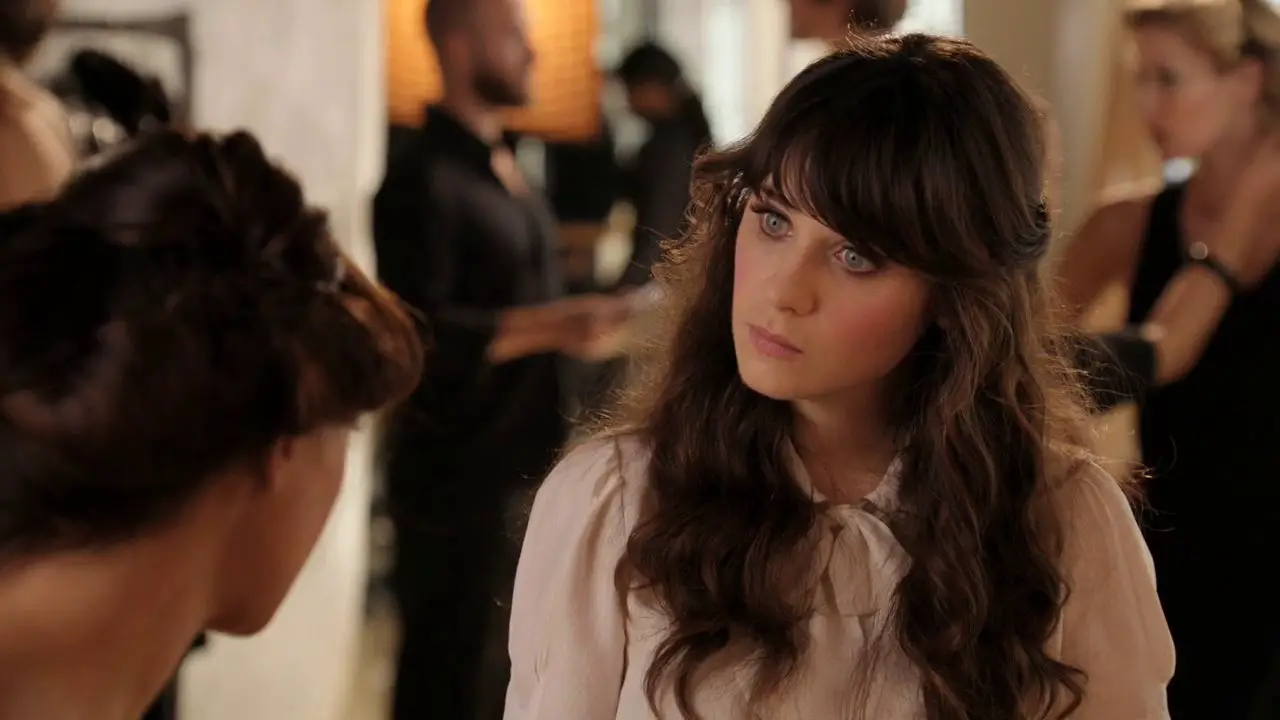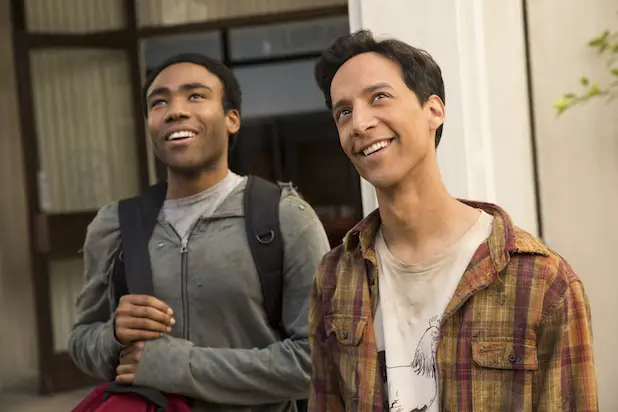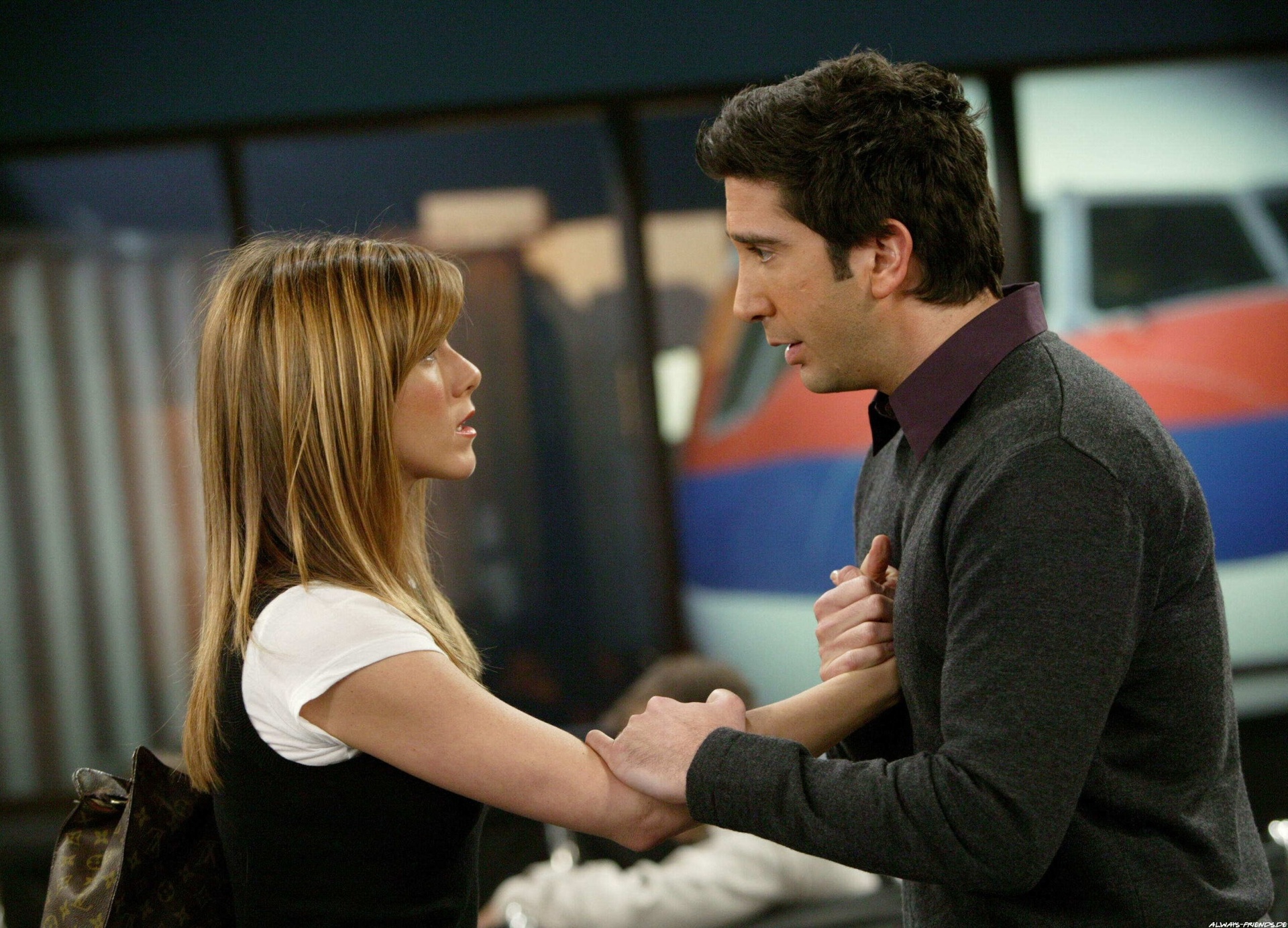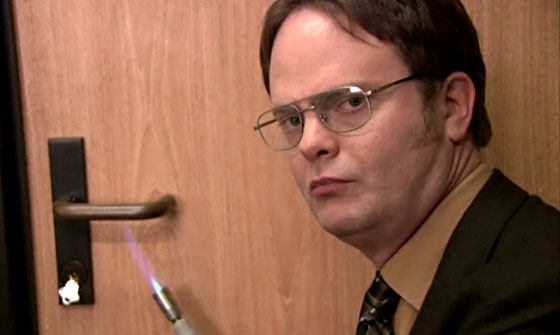So you’re strolling down the hallway, headed back to your apartment on an ordinary autumn day. You notice that your apartment door is wide open, but it doesn’t faze you as you go on imagining what kind of delicious, multi-layered sandwich you’re about to make. You turn to walk through the doorway, when all of a sudden you’re confronted with a turkey-headed monster wearing giant sunglasses and a tiny red fez hat. So, naturally, you scream bloody murder and break into a full-on sprint back down the hallway. Just a normal day in the life, right?
Well, if you’re fortunate enough to be a fictional character living in the kooky world of sitcoms, strange is the status quo. Though these shows do try to act as reflections of the real world, television writers have the power to take everyday situations and make them just weird enough to leave you wondering: How many bizarre events can happen to one group of people in such a short span of time? while simultaneously making them endearing enough to be relatable.
Sitcoms, or situational comedies, originated in the form of radio shows in the 1920s and progressed onto the silver screen in the 1940s, solidifying the format for decades to come. While sitcoms are commonly known to take place in one specific setting, or “situation”—such as Lucy and Desi’s house in the popular 1950s sitcom “I Love Lucy,” or Dunder Mifflin Paper Co. in “The Office”—these shows are known for taking their given situation and flipping it on its head, creating a hilarious (and often heartfelt) version of our reality.
Sitcoms fully embrace how messed-up, fun, complicated and totally weird life can be. The unusual situations sitcom characters find themselves in may not always be 100 percent realistic, but it’s in these strange dilemmas that viewers can live vicariously through their favorite characters and glean insight they might otherwise never have seen. After years of sitcom consumption, here are four of the most important life lessons I’ve learned from these televised fonts of wisdom.
1. It’s okay to trust strangers on Craigslist. – “New Girl”
Jess Day (Zooey Deschanel) took a shot in the dark when she put an ad up on the infamously shady Craigslist to find new roommates in the wake of her live-in boyfriend’s affair. Three guys answered her inquiry — guys who could potentially have been murderers or pervs or sociopaths, had this occurred in real life.

As it turns out, they are weirdos to the extreme (Schmidt has a “Douchebag Jar” and can’t pronounce common words correctly; Nick keeps all his money in a box and wants to be an intergalactic truck driver; Coach yells all the time and is quickly replaced by Winston, who’s obsessed with cats and puzzles), but they’re lovable weirdos. And that makes all the difference.
2. Dispute between friends? Fort-building war. – “Community”
When it comes to putting characters in ridiculous situations, “Community” is in a league of its own. When roommates/imaginary talk show hosts Troy (Donald Glover) and Abed (Danny Pudi) get into a fight about Abed having more control in their friendship, the only rational way to resolve their issues culminates in the form of a fort-building war.

Abed, who’s set on building his fort with pillows, builds his structure down the hallways of one side of the barely-legal Greendale Community College, while Troy builds his out of blankets on the other side. Tension reaches a boiling point when, in order for Troy and Abed to break the world record for largest pillow or blanket fort ever built, one side must come tumbling down.
Seriously. And because “Community” is just absolutely brilliant, its writers devoted an entire episode to this “war” between Abed’s Pillowtown and Troy’s Blanketsburg in the style of a Civil War documentary. Ultimately, the lesson to be learned from this insanity is that true friendship, while often messy, is worth fighting for. But the eccentric path to the unveiling of that frequently clichéd lesson is what makes it so much more entertaining.
3. Dangerous, unannounced fire drills are not a good idea. – “The Office”
“Last week I gave a fire safety talk, and nobody paid any attention,” says Dwight (Rainn Wilson), staring blankly into the camera as he uses a blowtorch to heat up a metal door handle.
The iconic scene that follows can only be described as pure chaos: Smoke fills the office as the fire Dwight started in a trash can grows larger, and since the neurotic beet farmer trapped all the employees (himself included) inside and cut the phone lines, everyone starts to panic.
Angela grabs the cat she’s been keeping in her drawer and throws it up to Oscar, who’s in the ceiling panels in an attempt to find help; Kevin smashes the vending machine glass to steal snacks for his final meal and Michael throws a projector out the window to scream for help. No one’s listening to Dwight, who’s shouting out fire safety rules as everyone runs around destroying things. At one point, Andy screams: “The fire is shooting at us!”
The scene ends with Stanley toppling over from a heart attack, ultimately proving that while it might seem like a great educational opportunity to commit arson in your workplace and nearly kill your co-workers, it’s probably in your best interest not to.
4. Some people are worth getting off planes for. – “Friends”
Now, this beautiful scene in the finale of everyone’s favorite ’90s sitcom, “Friends” — spoiler alert, for those of you who have yet to be hit in the feels by this historic moment — is one that I sincerely hope exists somewhere out there in our version of reality.

Because within the world of sitcoms, it’s perfectly plausible that after years of an off-and-on relationship, the girl or guy of your dreams will decide to give up his/her dream job in Paris, get off a plane and show up in your living room, confessing undying love for you. One can dream, but it’s these cinematic, bizarre, relatively unrealistic moments that set the alternate realities of sitcoms apart — and make them so appealing.
Through the misadventures of fictional characters, through their outlandish antics and bold choices that often lead them down a harrowing path of eccentricities, sitcoms present a slanted version of reality that allows viewers to both suspend their disbeliefs and take away a fresh perspective on their own world.


















Nice Blog…Thanks for sharing your information. java jobs